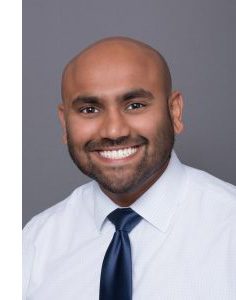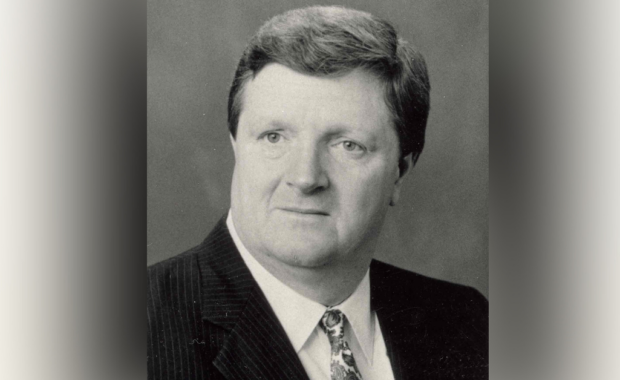PA in Orthopaedics Saves Patient’s Life with Generalist Education
By Dave Andrews

Among the millions of people who have dreamt of working in sports, only a small fraction of them have successfully turned those lofty dreams into real-life occupations.
So when PA Sincer Jacob — a big time sports fan — landed a job at Midwest Orthopaedics at Rush in Chicago, a practice that works with many of the city’s professional sports teams, he knew how fortunate he was.
Providing care to a number of high-profile athletes who play for the Chicago Bulls, White Sox, and Fire certainly has its thrills. But the outcome of a presumably routine encounter with one of his non-athlete patients is what created the most headlines.
“If it hadn’t been for Sincer and his thorough, attentive nature, [the newspapers] would soon be printing my obituary,” said Donna Palma, a patient at Midwest Orthopaedics and whose visit with Jacob in the summer of 2016 was nothing short of miraculous.
Palma, 72, initially sought treatment simply to address her persistent shoulder pain. But after examining her and reviewing the x-rays, PA Jacob made a life-saving observation — he noticed a possible nodule on her right lung.
Fortunately, PA Jacob had previously worked as a respiratory therapist, and later specialized in lung transplantation and thoracic surgery at the University of Chicago Medical Center. Having that broad background of experience proved to be invaluable in that moment.
“When I told my attending physician, he was shocked that I made those observations from a shoulder x-ray,” PA Jacob said. “But he told me if I felt it truly was a lung nodule, I should send her for whichever tests I thought were appropriate.”
Even though the patient—a former smoker who had a history of lynch syndrome—said she had been screened recently by her primary care doctor and was told everything was normal, PA Jacob decided to go with his gut reaction.
He immediately ordered a dedicated chest x-ray and a CT chest scan, which confirmed the nodule was present. Then, a PET-avid scan was ordered, showing that the nodule was hypermetabolic. PA Jacob referred the patient for thoracic surgery, and within two weeks, surgeons had successfully removed the portion of her lung with the nodule.
A short time later, the biopsy came back — positive for cancer. Had the nodule gone undetected, Palma would have had less than five years to live.
“I was just amazed by how fast it all happened, and it’s all thanks to Sincer,” Palma said. “He’s by far one the most dynamic, kind, gentle and informative providers I’ve ever met. He literally saved my life, and for that I’m eternally grateful.”
“Sincer is quick to credit the distinct nature of the PA profession, which affords PAs a high level of flexibility to change fields within the healthcare industry,” Palma says. “Pursuing different work experiences without having to press the “reset button,” he said, not only changed his life, it opened even more opportunities to impact the lives of others.
Palma’s case illustrates the value that PAs can bring to nearly any healthcare setting, especially those where PAs are entrusted with the appropriate levels of autonomy.
“My attending physician is really pro-PA because he truly sees the many benefits of having us on his team,” PA Jacob says. “He’s worked with Olympic athletes; he’s the head orthopedic officer for the Chicago Fire; and [he is the] team physician for the Bulls and White Sox. He’s in his 40s and already one of the top-producing orthopedists in the country—that’s no coincidence.”
PA Jacob is certain that much of their success comes as a result of the physician recognizing that PAs are not temporary staff, but rather, an investment in the overall long-term strength of the clinic. Knowing he has the full confidence of his attending physician, Jacob has thrived in this setting.
“I’ve known some PAs who go years without taking on more challenging cases, but we have a unique role in healthcare and it’s usually up to us to take more of the initiative,” PA Jacob said. “Establishing relationships, trusting in your team and maintaining that personal drive have been the most effective ways we’ve improved outcomes for our patients.”
Many 29-year-old professional athletes have already passed the prime of their careers. But a 29-year-old provider like PA Jacob is just getting started, and he’s already building an impressive highlight reel.
Thank you for reading AAPA’s News Central
You have 2 articles left this month. Create a free account to read more stories, or become a member for more access to exclusive benefits! Already have an account? Log in.




